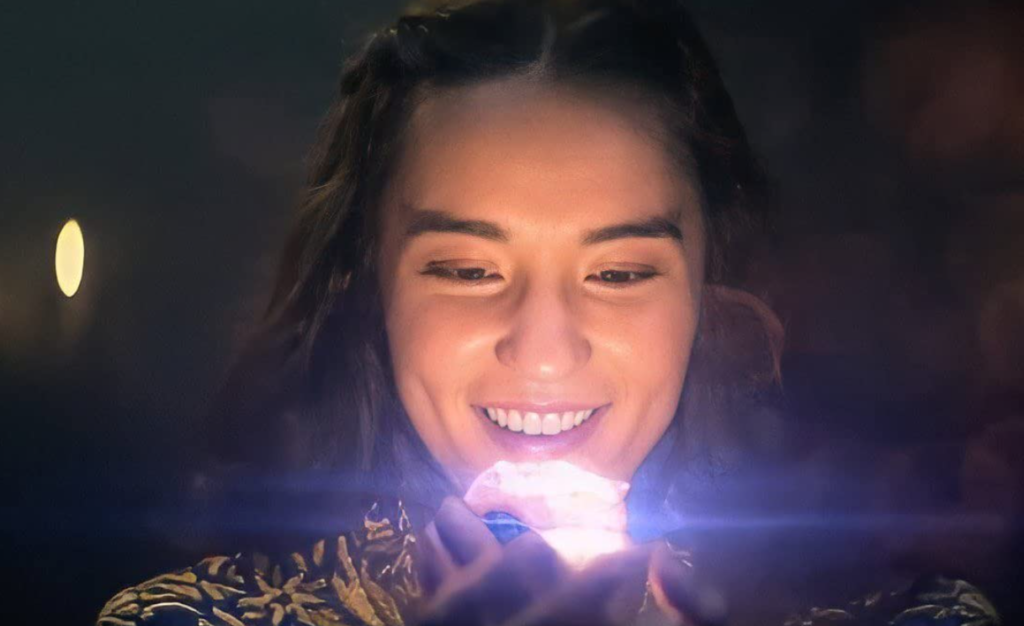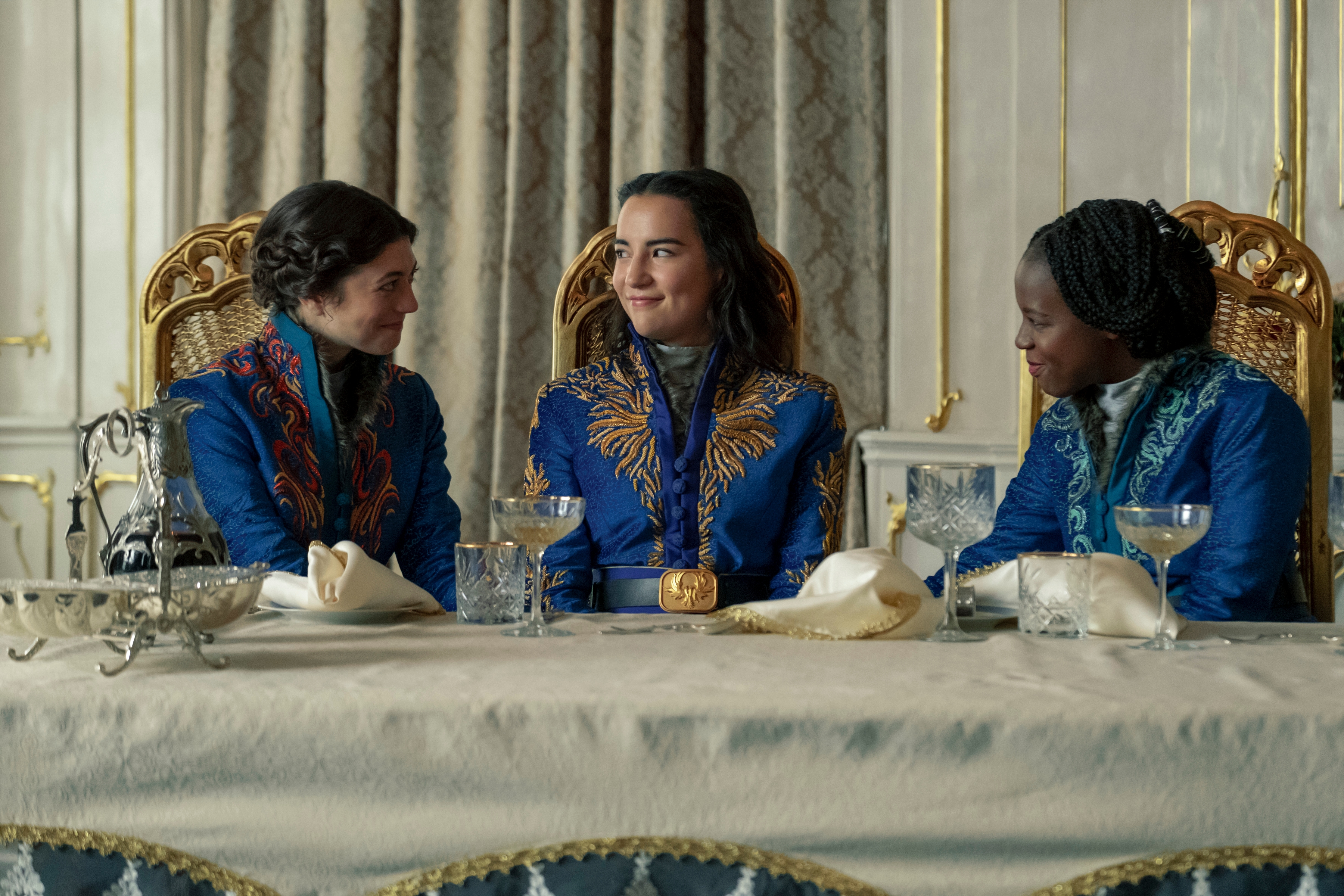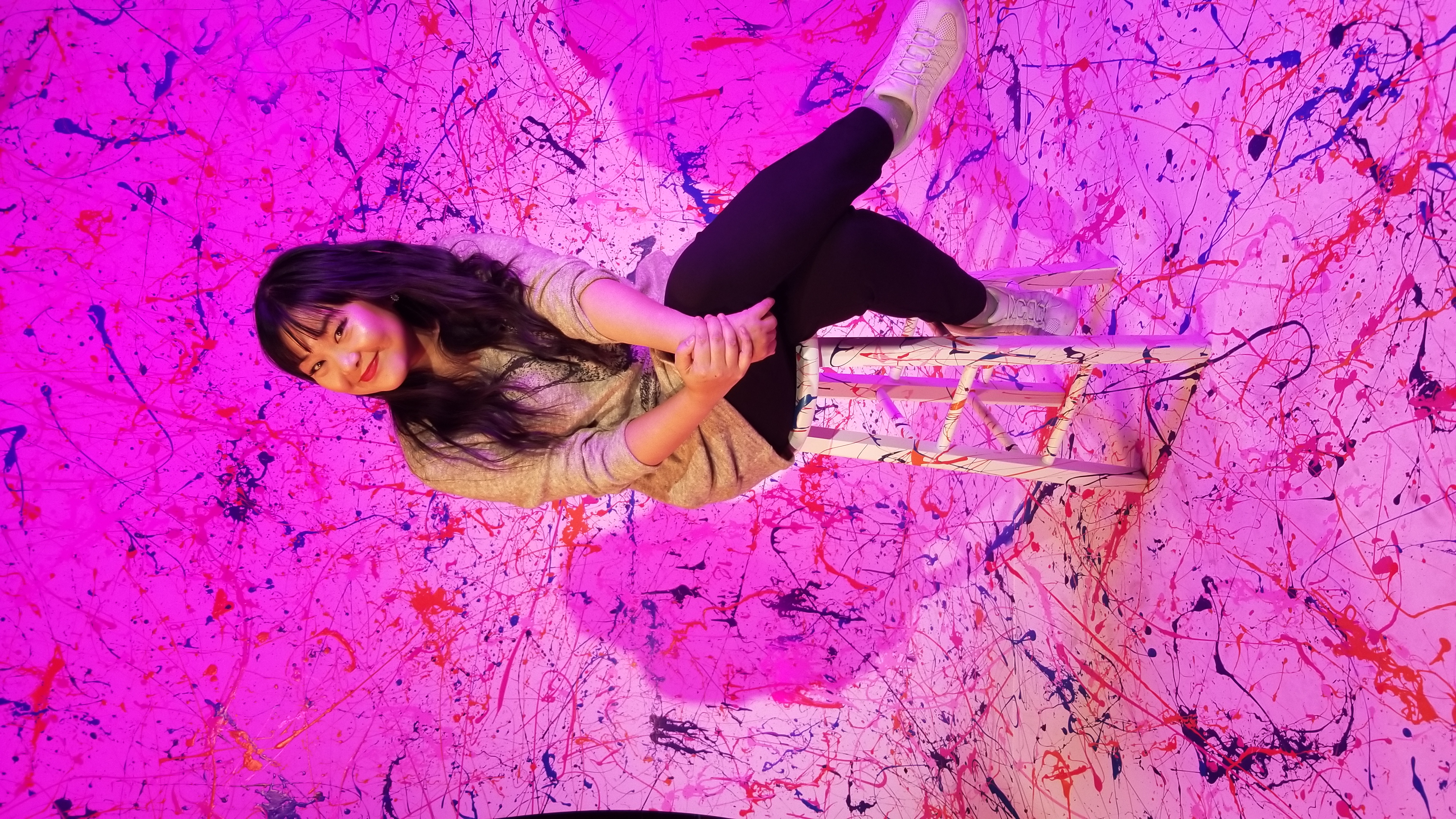How 'Shadow and Bone' embraces the Asian experience
"What are you?" is a constant question that is asked to Alina Starkov in 'Shadow and Bone'

The latest updates, reviews and unmissable series to watch and more!
You are now subscribed
Your newsletter sign-up was successful
Want to add more newsletters?

ONCE A WEEK
What to Watch
Get all the latest TV news and movie reviews, streaming recommendations and exclusive interviews sent directly to your inbox each week in a newsletter put together by our experts just for you.

ONCE A WEEK
What to Watch Soapbox
Sign up to our new soap newsletter to get all the latest news, spoilers and gossip from the biggest US soaps sent straight to your inbox… so you never miss a moment of the drama!
Read our full review for Shadow and Bone here.
Netflix’s much anticipated fantasy series Shadow and Bone is set to premiere this week. Based on the best-selling Grishaverse novels by Leigh Bardugo, Shadow and Bone is set in a war-town world that is divided by a monstrous Shadow Fold that consumes anything that goes through it. The only thing that can stop it is military mapmaker and orphan Alina Starkov, who discovers that she has the rare power to summon sunlight.
Inspired by the setting of Imperial Russia, Bardugo wanted to explore both Europe and Asia in the 19th century, where between the main country of Ravka, there lies the Fjerda (aka Viking-like people) in the north and The Shu Han people (based on East Asians) in the south. There is constant tension between the countries, but is made even more tense with the introduction of a second group of people—the Grisha.
The Grishas are humans with special abilities to summon powers. There are three main kinds of Grisha in Shadow and Bone: Summoners, who control elements like water, wind and fire; Corporalki, who can manipulate the human body; and Fabrikators, who work with chemicals or solid matter to invent magical items. There are two types of summoners who are extremely rare--the Shadow (darkness) summoner and the Sun summoner. Although the Grisha are powerful enough to take over the kingdom, they are out-gunned and out-populated by the non-powered humans and must fall in line with the current Ravkan monarchy to survive. In the military, there are two armies—the first army consisting of regular humans and the second army consisting of the Grishas who serve them.
“I live in East Ravka, but I’ve never been welcomed here. Cuz I looked like my mother and she looked like the enemy.”
Alina Starkov
The series introduces Alina Starkov (Jessie Mei Li) as a mixed Ravka and Shu Han, who is born and raised in Ravka, and immediately sets up how Alina is perceived as “other”. Alina narrates, “I live in East Ravka, but I’ve never been welcomed here. Cuz I looked like my mother and she looked like the enemy.” As Alina is drawing the Shadow Fold on the map, a fellow mapmaker makes a snide comment of how the drawing of the Fold looks different from his and he wishes she got a better view from her country, which he implies is from Shu Han. He is immediately shut down by a colleague saying, “She grew up here.”
Throughout Shadow and Bone, we cut to Alina’s time at the orphanage, which consisted of constant bullying from her fellow (white) orphans. She finds hope and escape in her friendship with fellow mixed orphan, Mal (Archie Renaux). Together, they form a bond so powerful that it’s hard to deny how much you want them to be together forever. It made sense that all Alina wanted to do was to escape from the racism to a place where she and Mal could just live normally.
After she discovers her power of sunlight, Alina is instantly given a newfound status of attention and pressure to be the savior to destroy the Shadow Fold and bring Ravka together. Separated from Mal — her only friend — Alina now has to deal with being another form of ‘other’ in being a mixed-Shu Han Grisha. During a confrontation with the Grisha General Kirigan (Ben Barnes), Alina asks him if she could transfer her powers to someone else. She doesn’t want to be separated from the only person she knows and seen as a target for the rest of her life.
The latest updates, reviews and unmissable series to watch and more!
Even in the Grisha army, where she is seen as the savior against the Fold, Alina is met with disdain over her mixed race. While Alina is being prepared to meet the King and Queen of Ravka, one of the beauty attendants makes a comment to have her eyes look less Shu. Clearly uncomfortable, Alina asks the tailor working on her makeup to not change her eyes. Fortunately, they do not change her features when presented to the King and Queen, which prompts the Queen to make a passing comment regarding Alina looking “Shu enough” and proceeds to ask Kirigan to translate ‘good morning’ in Shu. When Alina tells her she doesn’t speak Shu, the queen asks something that many Asians have dealt with before, “Then, what are you?” We can see in this moment that despite Alina’s power to summon the sun and stop the Shadow Fold, she will always be perceived as ‘other’ and face discrimination based on her race.
This question of identity “What are you?” is consistent throughout the series as Alina is asked this multiple times, once by Kirigan and again by Grisha trainer Baghra. Fortunately, Kirigan and Baghra ask Alina this, not for the purpose of her ethnic background, but regarding her newfound status as a Grisha. Alina’s identity as both mixed Shu and now a Grisha is in question for her to figure out her place in the world.

One could compare the entire situation of Alina (and Mal) with the current impact of anti-Asian racism growing rapidly in the western world. There are so many parallels to the idea of Asian American (or any other type of Westernized Asian) especially for those being of mixed Asian heritage. Though many are angry at the idea of making the character Asian during the height of Asian hate crimes, the decision to make Alina of mixed race was made prior to the pandemic. It was all just coincidence.
Bardugo said in an interview with The Nerds of Color, “I wish that this was something that was not a theme that keeps recurring, but it is.” Bardugo and showrunner Eric Heisserer said it just made sense to have Alina be half-Shu Han for the story. “She comes from a border town, and two nations in conflict and borders that are not walls, usually they are porous and people form attachments across them and do business across them,” said Bardugo. “And the people who try to live their lives there are frequently caught in the crisis, the crossfire of governments and the people in power.”
Fortunately, Shadow and Bone does not revolve around Alina’s ‘Shu-ness’ or the racism that she deals with. Alina’s experiences of being other doesn’t hinder her story and her ‘Shu-ness’ is not an obstacle she must overcome. The decision to make Alina of mixed Asian descent was to add another layer of feeling like an outsider. In the books, Alina and Mal are seen as misfits due to the fact that they were orphans, after losing their parents during the Border Wars between Ravka and Shu Han. For the series, it made sense to have Alina and Mal be part Shu in order to feel like outsiders in the orphanage. Many of their fellow orphans lost their parents because of the Shu Han people.
Having the face of the enemy would definitely cause trouble for both Alina and Mal to feel like they had no one else but each other. It does make the story feel relatable to many Asian Americans (and Westernized Asians), especially now with the current climate surrounding us. But there is more to Alina’s story than just her race and Jessie Mei Li hopes that when people are watching the series, they will see how ridiculous the racism is. Li, who has had her own experiences of micro-aggressions and fetishization as an Asian person, describes a scene in the series where Alina is in a marketplace, after all the accomplishments she had learned as a Sun Summoner, and is harassed by random soldiers for her appearance. “I think it really highlights how stupid that is just to insult someone based on how they look,” Li said in an interview. “I think so much of this show is about finding out where you belong and who you are.”
Although I understand the concerns surrounding displaying racist comments towards Alina being triggering, it is also inspiring to watch an Asian lead character begin to feel what was, at first, shame to now embracing what makes her different. There was a point in the story where Alina is sent a special kafta to wear, symbolizing her position as the Sun Summoner, but she refuses to wear it and instead dons the blue kafta she was given.
Kirigan comments, “Tell me, are you so anxious to be like everyone else?” She responds, “It would be nice to know what that feels like someday, General.”
As we follow Alina’s journey of self-discovery throughout the series, she gains confidence in her abilities as well as in herself. In an awkward scene in Kirigan’s personal study, where Alina even has the confidence to kiss Kirigan, she tells him, “I’ve always felt like an outsider, especially when I first got here. But now I finally feel like I belong. And not that I just belong here, but to something greater. That we can offer Grisha and Ravkans hope for the future.” Without revealing too much of the plot, Alina does go through a lot in the series dealing with her identity and who she has become by the end of the series, even addressing the question that has been posed to her since the beginning of the series, “what are you?” by answering in full confidence, “This is what I am.”
Shadow and Bone will be available to stream on Netflix on April 23, 2021
Laura Sirikul is a freelance writer, researcher, and managing editor of The Nerds of Color. Throughout her career, she has written for Nerd Reactor, What To Watch, Nerdist, IGN, Movie View Magazine, Red Carpet Report, Mental Floss, Trek News, The Hollywood Reporter, Character Media, Bitch Media, and many other outlets. She has been on NPR's Pop Culture Happy Hour, Nerdist's Fangirls, and many other news shows. For almost ten years, she has covered film and television extensively along with in-depth interviews with major studios such as Disney, WB, and FOX. She is also a member of the Asian American Journalist Association and the Hollywood Critics Association. Apart from addressing topics covering film and television, Laura is a strong advocate for social awareness for the underrepresented in the entertainment industry.


